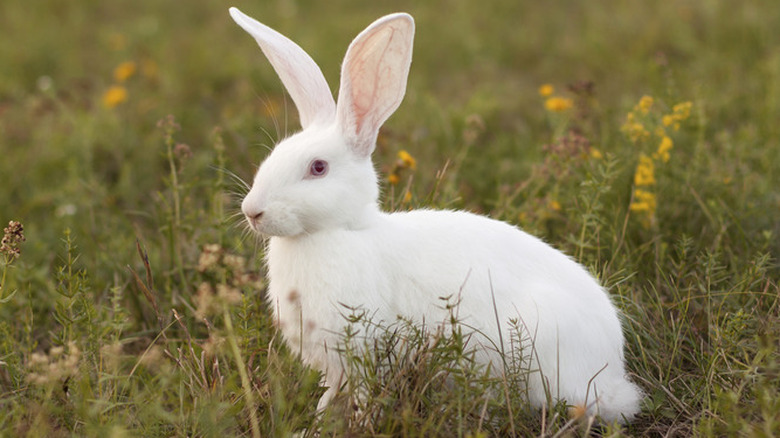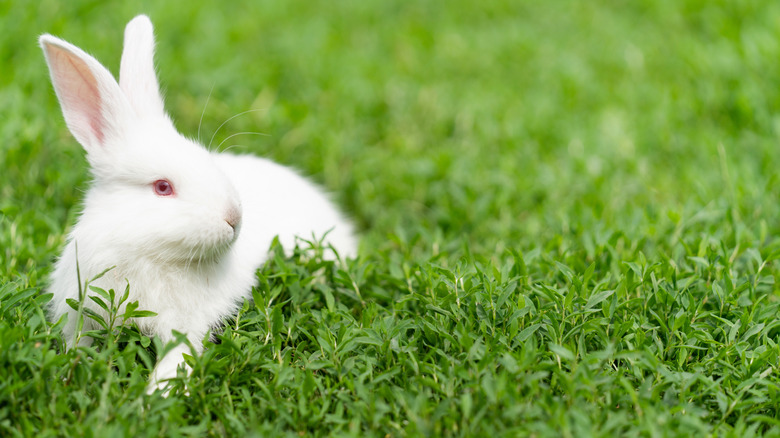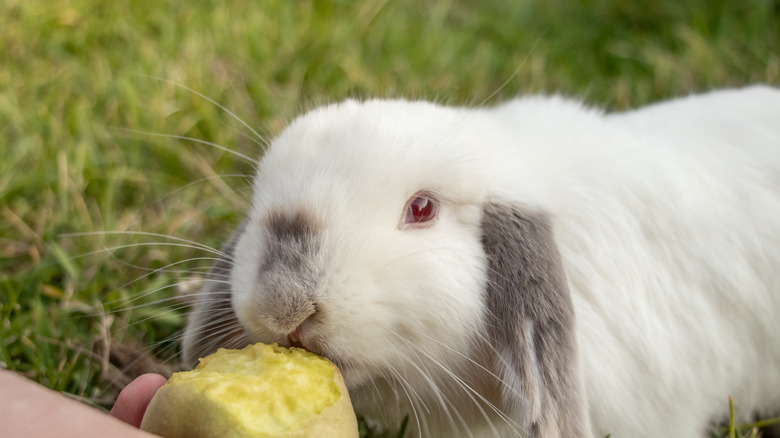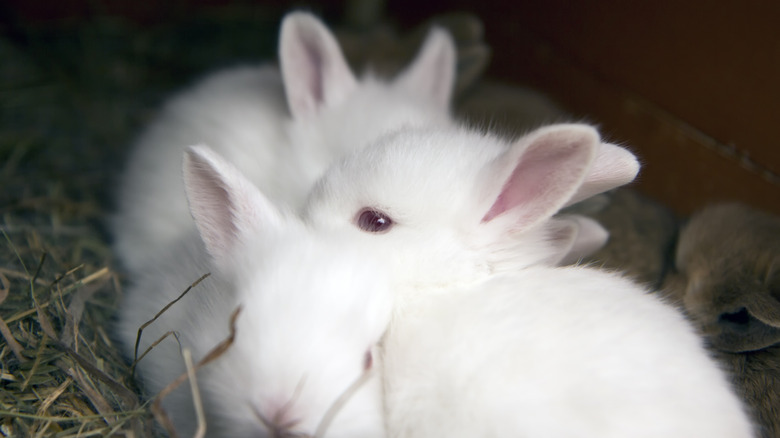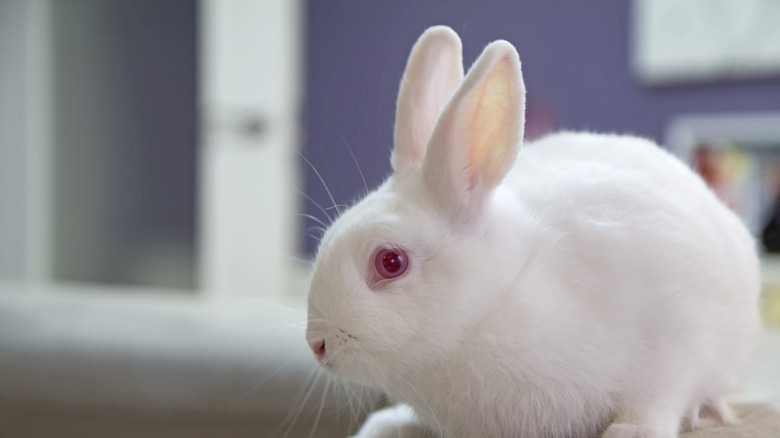Do You Have An Albino Bunny? Here's Your Guide To Albino Rabbits Eyesight & Health
Albino rabbits are easily some of the best rabbits for kids, as they are beautiful and cuddly. An albino bunny looks like a white rabbit, and their red eyes mean they are lacking pigmentation that would otherwise give their fur and eyes color. Their bright red eyes are a startling contrast to their pure white fur, but there's nothing inherently evil about albino rabbits.
Albino rabbits are extremely sensitive to the sun, so you'll need to be considerate about their eyesight and make sure they don't get too much bright light. Albino rabbits don't have any unusual health concerns because of their albinism.
White rabbits with red eyes
Albinism was originally a natural development in rabbits because of a genetic mutation that blocks the creation of an enzyme called tyrosinase. The enzyme tyrosinase is responsible for the creation of melanin pigments that create color.
Typically, rabbits have melanin pigments in their eyes that create their eye color. For instance, pheomelanin results in dark brown eyes. The distance between the melanin pigments in their eyes also plays a role. If the space between pigments is large, their eyes will be brown, while a small space between the particles will result in blue eyes. Albino rabbits have red eyes because the iris reflects light off their blood vessels instead of pigments.
Albino rabbit genetics
Albinism is caused by genes in the C locus section of their DNA that are responsible for creating specific characteristics. Albino rabbits can be bred, and their baby rabbits will also be albino because then the albino gene becomes dominant. The albino gene can also be recessive, so it's possible for two nonalbino rabbits to produce albino baby bunnies.
Any rabbit breed can be albino, but some rabbit breeds have a greater chance of being albino. Not all big white rabbit breeds are albino, but some big white rabbit breeds can be albino, like the New Zealand white rabbit, white Flemish giant rabbit, Californian rabbit, Angora giant rabbit, lionhead rabbit, and Himalayan rabbit.
Albino bunny health
Albino rabbits experience light sensitivity and will need to be protected from excessive sunlight exposure. They are at a higher risk of experiencing sunburn. An albino rabbit's eyes can also be damaged from the sun's UV rays since their eyes are very sensitive. To protect your albino rabbit from the sun, monitor his time outside. When your albino bunny is outside, ensure that he has areas where he can seek shade, like under a tree, inside a cardboard box, or under an awning.
Although there is little information published on how albinism impacts a rabbit's internal organs and immune system, some research into other small animals, like guinea pigs and Siamese cats, has suggested a link between albinism and hearing abnormalities. However, other research has contested any connection between deafness and albinism.
Albino bunny eyesight and behavior
Albino rabbits have eyes that are unlike any other bunny since their irises lack pigmentation. Instead, what you're seeing when you look at an albino rabbit is the blood vessels, which gives them that bright red color. However, it's a common misconception that albino rabbits cannot see because of this lack of color.
In fact, similar to other rabbits, they can access an impressive 360 degree field of vision with minimal movement. However, the lack of pigment in their eyes does make them sensitive to light. For this reason, it's recommended that albino rabbits be kept in dimly lit areas to keep them comfortable.
